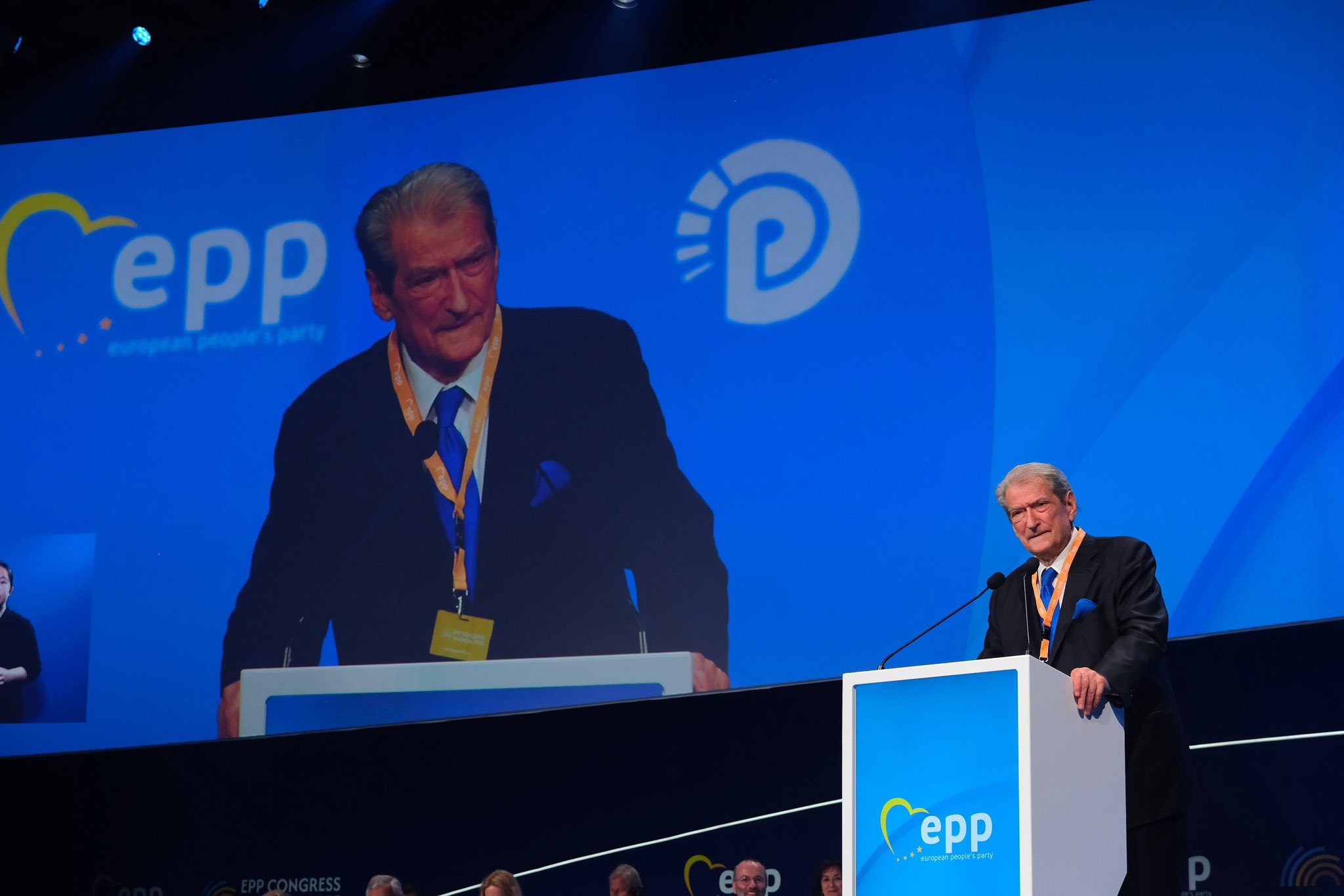Europe’s center-right embraces Berisha again — prompting a scornful response from Albania’s prime minister

Photo: Sali Berisha, leader of the Democratic Party, delivering his speech at the EPP Congress in Valencia.
The European People’s Party (EPP) has adopted a resolution titled “Electoral Integrity in Albania,” submitted by the Democratic Party (DP) of Albania at its recent congress in Valencia. The document, which appear to be a copy & paste of DP talking points over the years, accuses the Albanian government of undermining the May 11 parliamentary elections through manipulation, abuse of power, and institutional control. What is striking is that several arguments in the resolution endorsed by EPP appear to have been resurrected from past years, as they no longer feature prominently in Albania’s current political discourse.
Why this is important: The resolution marks a sharp and unexplained reversal in the EPP’s position. Until recently, the party had distanced itself from Sali Berisha, due to his designation as “non grata” by the United States and United Kingdom, and his ongoing criminal trial for corruption. For years, the EPP supported Albania’s reformed justice institutions, which are now prosecuting Berisha, often against Berisha’s furious attacks and efforts at intimidation. But the new resolution suggests political loyalty is taking precedence over earlier concerns about rule of law—even though Berisha’s legal status remains unchanged.
Context: The resolution echoes claims made by the Democratic Party over the past 10 years, including alleged vote buying through cash handouts and cannabis-linked patronage, politically motivated public hiring and procurement, abuse of public institutions and media, and the illegal appointment of a new mayor in Tirana following the arrest of Erion Veliaj. It also denounces what it calls politically driven investigations into opposition candidates, which seems to be the first direct attack by EPP against the reformed justice institutions of Albania.
The document warns that political pluralism in Albania is under threat due to institutional pressure and that the justice system is compromised by government influence and impunity.
Prime Minister Edi Rama reacted strongly, ridiculing the resolution as a recycled list of complaints from a party anticipating defeat. He described it as nothing more than an old script repeated before every election.
Rama rejected each of the DP’s accusations point by point. He mocked the resolution’s claim that cannabis money is being used to sway voters, calling it the most absurd accusation yet. He noted that the government had preemptively frozen all public hiring ahead of the campaign, not because of legal obligations but to ensure a level playing field. On procurement, he cited EU assessments placing Albania first in the region for public procurement transparency. Regarding the media, Rama said criticism of voter sentiment in the press contradicts polling data that shows strong support for the Socialist Party and Albania’s current direction.
On the appointment of the acting mayor of Tirana, Rama stated that the deputy mayor assumed leadership in accordance with legal procedures. He dismissed claims of politically motivated prosecutions as irrelevant to the electoral process, implying they referred to Berisha’s legal troubles, calling him “the swamp’s owl.”
Rama also emphasized the role of the Special Anti-Corruption Structure (SPAK) in monitoring election conduct. He described SPAK as an impartial arbiter in the May 11 race and expressed confidence that the body is reviewing any credible complaints.
What’s next: Though the resolution provides rhetorical ammunition for the Democratic Party to challenge the election results—especially if, as polls suggest, it suffers a significant defeat—it is unlikely to sway the Albanian electorate. For Berisha, the EPP’s renewed support may be less about winning votes and more about positioning himself as a legitimate international actor, despite his unresolved legal status and international isolation.


